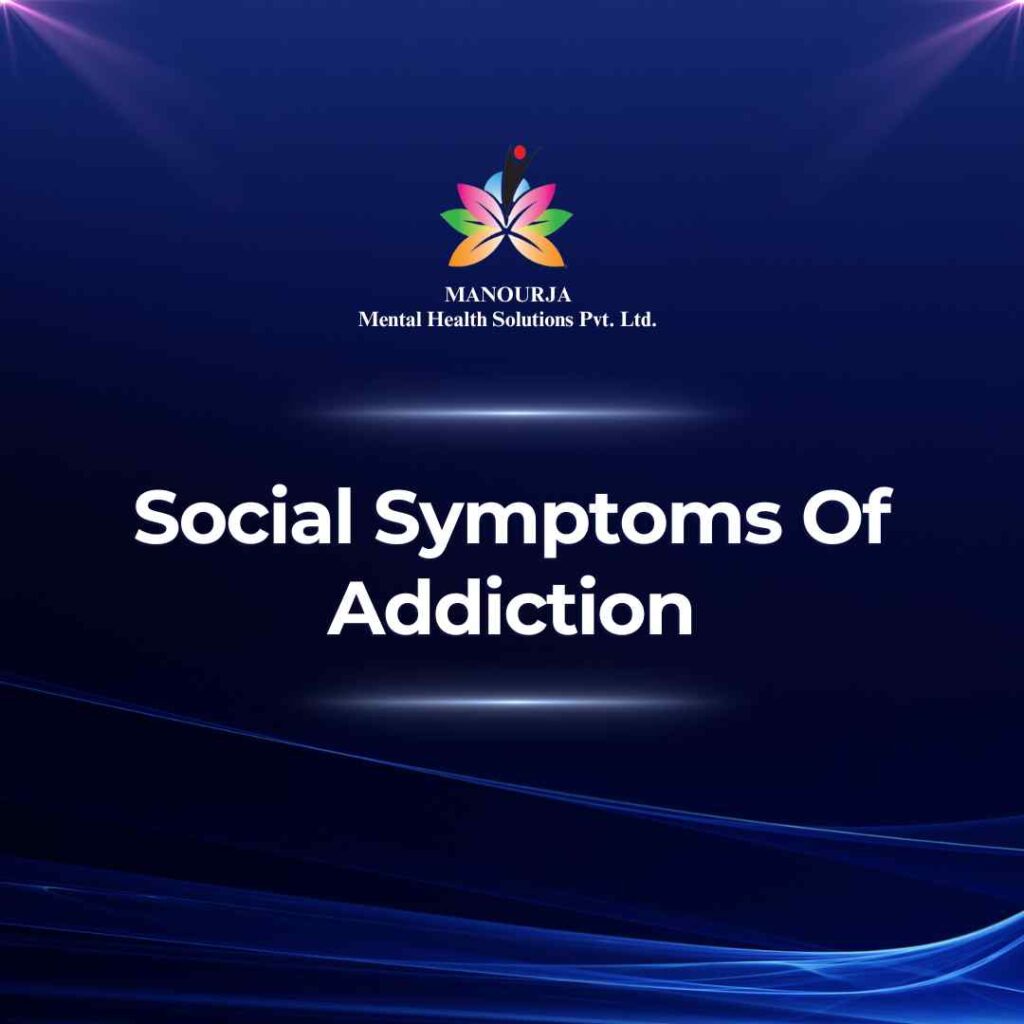Social Symptoms of Addiction

Addiction has profound social implications, impacting an individual’s relationships, community ties, and overall social functioning. Recognizing the social symptoms of addiction is crucial for understanding the comprehensive nature of this condition.
Here are key social symptoms associated with addiction:
- Withdrawal from Social Circles
Individuals may withdraw from family, friends, and social activities, preferring isolation to conceal their addictive behaviors.
- Relationship Strain
Addiction often leads to strained relationships with family members, friends, and romantic partners due to broken trust, lies, and emotional distance.
- Neglect of Responsibilities
Individuals struggling with addiction may neglect their responsibilities at home, work, or in the community, leading to financial strain and job instability.
- Social Isolation
A gradual withdrawal from social events and gatherings, as the focus shifts increasingly towards obtaining and using substances or engaging in addictive behaviors.
- Deterioration of Friendships
Close friendships may erode as a result of broken promises, unreliability, and a diminished capacity for emotional connection.
- Legal Issues
Involvement in legal problems, such as arrests or convictions, often arises due to behaviors associated with substance abuse.
- Financial Struggles
Addiction can lead to financial instability, with individuals prioritizing the substance or addictive behavior over essential financial commitments.
- Employment Issues
Difficulties at work, including absenteeism, decreased productivity, and job loss, may result from the impact of addiction on performance.
- Social Stigma
Individuals with addiction may experience social stigma and discrimination, hindering their ability to seek help and re-integrate into society.
- Loss of Support Systems
The erosion of support systems, as family and friends may distance themselves due to the challenges associated with the individual’s addictive behaviors.
- Deceptive Behavior
Engaging in deceptive behavior to hide the extent of addiction, leading to a breakdown in trust within social relationships.
- Peer Influence
Associating with peers who also engage in substance abuse or addictive behaviors, reinforcing and normalizing the addiction.
- Social Alienation
Feeling alienated from the broader community due to the impact of addiction, which can contribute to a sense of loneliness and despair.
Developing social anxiety or heightened self-consciousness, especially when individuals are aware of the negative perceptions associated with their addiction.
- Family Dysfunction
Disruption of family dynamics, often marked by increased tension, arguments, and an overall breakdown in communication.
Understanding the social symptoms of addiction is essential for developing interventions that address not only the individual’s physical and psychological well-being but also their interconnectedness with the broader social context. Comprehensive treatment approaches often include strategies to repair relationships, rebuild social support networks, and reintegrate individuals into their communities.
At MANOURJA, we believe in the transformative power of counseling. Our experienced therapists offer a safe and supportive space where you can explore your thoughts, emotions, and challenges. Through personalized counselling sessions, we’ll work together to develop coping strategies, build resilience, and achieve lasting positive change. Discover the path to a healthier, happier you with MANOURJA counselling services.
MANOURJA Rehabilitation Services
At MANOURJA, we’re dedicated to helping you in rebuild your life, after difficult times. Our rehabilitation services focus on understanding what you need to move forward, whether you’re recovering from addiction, trauma, or any psychological – social challenges. We create personalized plans, that are all about helping you, regain your strength and find hope again. With a caring team by your side, you’ll have the support to make real progress and take steps toward a brighter, healthier future
